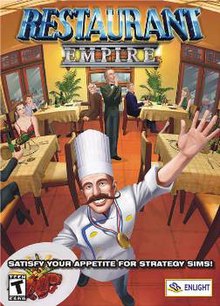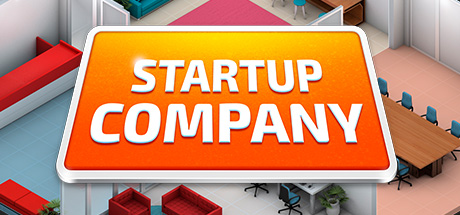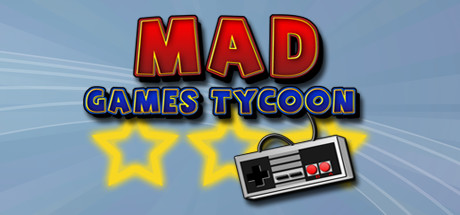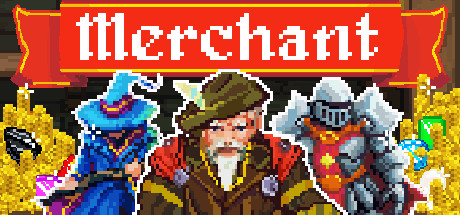In recent years, the gamification of education has become an increasingly popular trend, with the market expected to reach a staggering $50 billion by 2027. This growth has caught the attention of forward-thinking educators and platforms like Under30CEO, pioneering innovative ways to teach business skills to the next generation of entrepreneurs and investors under 30.
Business games offer students a unique opportunity to engage in hands-on learning experiences. They allow them to manage virtual companies, participate in simulated stock trading, and develop their entrepreneurial mindset in a risk-free environment.
These immersive experiences starkly contrast traditional lecture-based learning, which often fails to captivate and engage young minds.
- The impact of gamification on student performance is well-documented and highly impressive. Recent studies have shown that students who learned through challenge-based games outperformed their lecture-only counterparts by up to 95%.
- This remarkable improvement in performance highlights the potential of gamification to revolutionize the way we teach and learn business skills.
- Moreover, gamified learning has proven to be significantly more motivating and engaging for students, with 75% of participants reporting higher levels of enjoyment and motivation than traditional courses.
- This increased engagement can lead to better retention of knowledge and a deeper understanding of complex business concepts.
As the demand for innovative and effective business education grows, it is clear that gamification will play a crucial role in shaping the future of entrepreneurship training. With its ability to captivate, engage, and educate young minds, gamification is poised to become the next big thing in business education for the under-30 crowd.
Looking for entrepreneurship-related games? Here is our guide for great entrepreneurship games.
Products: the Card Game

Products: The Card Game, a recent breakout hit, injects creativity into entrepreneurship education (skypig).
Players collaborate to invent wacky products by combining fantastical features with everyday objects on cards.
This whimsical approach sparks brainstorming and encourages players to think outside the box, fostering innovative thinking and problem-solving skills (Due).
While Products: The Card Game prioritizes creative pitching over complex financial planning or market research, it plants the seeds of entrepreneurial spirit and ignites a passion for product development in a fun and engaging way.
Related: Win Friends. Influencer People. Achieve What You Want
Venture Forth
/pic982921.jpg)
Become a Renaissance merchant in this worker placement board game. Gather resources, build structures, fulfill contracts, and manage your workforce. Learn resource management, production chain optimization, and worker efficiency (BoardGameGeek).
Franchise
/pic4119406.jpg)
In this fast-paced card game, you will build a successful fast-food franchise. Collect ingredients, construct restaurants, and compete for customers.
You will also develop skills in resource management, quick decision-making, and understanding customer preferences. (BoardGameGeek)
Theme Hospital

Theme Hospital injects humor into the often-serious world of hospital administration.
Developed by Bullfrog Productions (Wikipedia), this game tasks players with building a successful medical facility, from curing wacky illnesses like “Bloaty Head” to managing a team of eccentric doctors and nurses (Games on Review). This lighthearted approach makes complex topics like resource allocation and patient flow more approachable, fostering strategic thinking in a fun and engaging environment.
While Theme Hospital excels at simulating hospital operations, its focus on the healthcare industry may limit its broader business applications.
Additionally, the depth of the gameplay can be time-consuming, and the quirky diseases and characters might be less relatable to students unfamiliar with medical concepts.
Related: 80 Game Season Versus 80 Hour Work Week
Freelancer

Explore a vast galaxy in this open-world space trading game. Trade goods, take on missions, build your reputation, and navigate a dynamic in-game economy. Gain experience in economics, risk management, reputation building, and navigating a dynamic market (Wikipedia).
Zoo Tycoon

According to a review by GameSpot (Gamespot), Zoo Tycoon is a valuable tool for nurturing an interest in zoology and conservation among young audiences.
The game’s engaging mechanics tasked with breeding endangered species and maintaining habitats cultivates a sense of responsibility for animal well-being.
Beyond enclosure design, Zoo Tycoon incorporates research elements encouraging players to explore animal behavior and population management strategies. While Zoo Tycoon excels in simulating zoo operations, it might be limited in its broader business applications, focusing primarily on the zoo industry. Furthermore, extensive gameplay sessions can demand significant time investment, and the complexity might deter students unfamiliar with zoological concepts.
Startup & Co: Roll & Play
/pic3678411.png)
This fast-paced dice-based game simulates the early stages of a startup company. Raise funds, develop products, compete for market share, and manage resources. Get a fun introduction to the challenges and decisions faced by early-stage startups (Plan B Games).
Restaurant Empire

According to a review by GamesIndustry.biz (MetaCritic), Restaurant Empire dives deep into the intricate world of restaurant operations.
Players take the reins of a budding restaurant, tackling everything from crafting a mouthwatering menu to managing a team of temperamental chefs and dealing with demanding customers.
This hands-on approach goes beyond recipe creation, offering valuable lessons in staff scheduling, inventory control, and marketing strategies to attract a loyal clientele.
While Restaurant Empire excels in simulating the daily grind of restaurant life, it might be limited in its broader business applications. Furthermore, extensive gameplay sessions can demand significant time investment, and the immersive nature may distract from purely educational objectives.
Related: 13 Important Qualities to Look for in a Mentor
Coffee Roaster
/pic4818329.jpg)
Run your own coffee roasting business in this simulation game. Source beans, create unique blends, set prices, and build a brand. Gain insights into supply chains, marketing, branding strategies, and the coffee industry (Steam store).
Wall Street Survivor

Wall Street Survivor stands out for its emphasis on educational resources.
While it offers a realistic simulation environment, the game shines in its comprehensive library of articles, videos, and tutorials that break down complex financial concepts into digestible lessons (Wall Street Survivor). Focusing on financial literacy empowers players to go beyond simply picking stocks and make informed investment decisions based on a strong understanding of market fundamentals.
However, Wall Street Survivor’s focus on individual competition may not cater to all learning styles, and some users may find the lack of a social or collaborative element a drawback.
Startup Company

Startup Company, unlike its board game counterparts, throws players headfirst into the nitty-gritty of running a tech company. Developed by Hovgaard Games (Steam), the game boasts a detailed simulation where students manage everything from research and development to employee happiness and marketing campaigns.
This in-depth approach provides a realistic experience, allowing players to grapple with real-world challenges like production bottlenecks, talent poaching, and market saturation (YouTube).
Startup Company offers a crash course in complex business functions, fostering a deeper understanding of the intricacies of building a successful tech startup.
Rise of Industry

“Rise of Industry,” a highly regarded industrial simulation game, immerses players in the role of a budding entrepreneur in the early 20th century. Players are tasked with building and managing an industrial empire, from constructing factories to optimizing supply chains. Set in a dynamically evolving world, the game emphasizes strategic decision-making and economic management, teaching principles of supply chain logistics, production efficiency, and market economics.
The game’s complexity is notable, offering detailed management tools such as budget overviews and ROI analysis. Players must navigate various challenges, including resource management, production logistics, and competition from AI rivals. Additionally, the inclusion of random business events and auctions adds to the strategic depth and replayability.
Despite its educational potential, “Rise of Industry” has a steep learning curve and a focus on historical industrialization, which may limit its relevance for those interested in modern entrepreneurship. The game’s detailed mechanics and strategic requirements can be overwhelming for beginners, and its focus on industrial activities might not fully translate to contemporary business contexts (YouTube) (Steam Store) (SelectButton) (Wikipedia).
Project Highrise

Project Highrise, a standout in the simulation genre, tasks players with designing and managing a skyscraper, requiring attention to tenant selection, building maintenance, and urban planning. This game excels in providing a detailed look at real estate economics, teaching players about property valuation and rental income, and offering challenges in keeping tenants satisfied with amenities like copy machines and courier services (Rock Paper Shotgun) (Gameranx).
Players can engage in meticulous planning, balancing power, phone, and plumbing lines to meet tenant needs, and managing deteriorating residential spaces, making it an excellent tool for understanding facility management. The game also allows for creative skyscraper designs, enhancing architectural appreciation (Gameranx).
However, its focus on skyscraper construction may limit learning to this specific context, and the gameplay can become repetitive once all building options are explored. The art style and limited character interactions may also detract from the immersive experience, making the tower feel sterile at times (Rock Paper Shotgun) (Push Square). Despite these limitations, Project Highrise provides a robust foundation for understanding the intricacies of property management and urban development.
Mad Games Tycoon

Mad Games Tycoon, a highly rated simulation game, lets players build and manage their own game development studio, handling tasks from hiring staff to marketing and game design. Starting in the early 1980s with a small garage setup, players can expand their business into a global gaming empire by researching new technologies, developing hit games, and upgrading office spaces. The game provides an immersive experience into the intricacies of game development and business management.
However, while it fosters creativity and strategic thinking, it also comes with challenges. The game’s lack of an extensive tutorial can make it difficult for new players to grasp all mechanics, leading to frequent trial and error (Ladies Gamers) (Gaming Respawn). Additionally, the console versions have been criticized for control issues and a notable keyboard glitch that limits naming flexibility, which detracts from the overall experience (Gaming Respawn). Despite these drawbacks, the game remains a compelling choice for those interested in the game development process, offering deep and rewarding gameplay (Impulse Gamer) (Ladies Gamers).
Merchant

“Merchant of the Six Kingdoms,” a standout simulation game, immerses players in the role of a medieval trader navigating a complex market system. Released in 2023, it offers a rich experience in bartering, haggling, and strategic investment across 20 diverse markets with over 1,800 tradeable items (Steam Store) (MobyGames). Players encounter dynamic economic conditions, requiring careful management of resources and strategic decision-making to overcome challenges such as piracy and market volatility. The game also incorporates unique features like participating in auctions, gambling on horse races, and forming alliances to become the “King of Coin” (MobyGames).
Despite its engaging gameplay, “Merchant of the Six Kingdoms” can be time-consuming and may oversimplify certain aspects of medieval trade, potentially limiting its educational value. Additionally, its focus on a historical setting might restrict its relevance for those seeking insights into modern economic practices (Steam Community).
Investopedia Simulator
:max_bytes(150000):strip_icc()/SimulatorRecricImage-b7b273fabe03447bbac157e1f2fb56d9.jpg)
The Investopedia Simulator, a widely used platform, provides a risk-free environment for players to practice trading stocks, options, and ETFs with $100,000 in virtual cash. It’s an excellent tool for beginners to learn about investing, offering a realistic portrayal of market dynamics by incorporating delayed data feeds from real markets. Additionally, the simulator boasts a vast library of educational resources and tutorials, enhancing users’ understanding of investing concepts and strategies.
Despite its strengths, the simulator has limitations. It emphasizes short-term trading over long-term investment strategies, potentially skewing users’ perceptions of market behavior. The platform’s user interface is somewhat dated and less intuitive for beginners, lacking features like hover boxes that explain functions. Moreover, it primarily focuses on U.S. stocks and options, neglecting other asset classes like commodities or international equities, and its individualistic nature may limit opportunities for collaborative learning (Well Kept Wallet) (Investguiding) (Moneywise).
Related: What Can Young Entrepreneurs Learn From Basketball?
Marketwatch Virtual Stock Exchange

MarketWatch Virtual Stock Exchange, a premier investing simulator, enables players to trade stocks, options, and mutual funds using real-time market data. Users can participate in public leagues or create private ones to test their investing strategies in a competitive environment. This platform offers a realistic portrayal of the stock market, enhanced by educational resources and tutorials that help users grasp complex investing concepts.
The simulator provides a million-dollar virtual portfolio, allowing users to buy and sell shares on NYSE, NASDAQ, and AMEX, with a straightforward interface that tracks portfolio performance and market trends. While it effectively simulates real-world trading,
it tends to focus on short-term trading over long-term strategies and lacks advanced charting tools and technical indicators. Additionally, the emphasis on stocks and mutual funds means it overlooks other investment opportunities like bonds or real estate.
Overall, MarketWatch Virtual Stock Exchange serves as an excellent tool for beginners to learn and practice trading, though its limitations in scope and depth may not satisfy more advanced users (Apple) (RankRed) (Allie Grace Garnett).
The Role of Strategy in Gamified Learning
Gamified learning thrives on strategic thinking. Players must analyze data, predict trends, and make decisions under time constraints. These skills mirror real-world challenges faced by entrepreneurs and investors. By encouraging strategic planning, simulators teach students to evaluate risks and opportunities carefully.
This builds confidence and decision-making abilities that extend beyond the virtual world. As students sharpen their strategies, they develop critical thinking skills essential for success in competitive industries.
Frequently Asked Questions (FAQs)
Q: What are business games and why are they important for students?
A: Business games are interactive simulations that allow students to manage virtual companies, trade stocks, or develop entrepreneurial skills in a risk-free environment. They provide hands-on learning experiences that can increase student performance and engagement compared to traditional lectures.
Q: How effective is gamification in education?
A: Gamification is very effective in education. Students who learned through challenge-based gamification performed up to 89.45% better than those who only received lectures, and 67% of students found gamified learning more motivating and engaging than traditional courses.
Q: What are some of the best business games for teaching entrepreneurship?
A: Some top picks for teaching entrepreneurship include Products: The Card Game, which encourages creative product development; Startup Company, which simulates running a tech startup; and Mad Games Tycoon, which allows players to manage a game development studio.
Q: Are there any games that teach financial literacy and stock trading?
A: Yes, Wall Street Survivor and Investopedia Simulator are great options for learning about investing and trading stocks. They provide realistic market simulations and educational resources to help players understand financial concepts and strategies.
Q: What kind of skills can students learn from playing business games?
A: Business games can teach various skills, such as resource management, strategic decision-making, supply chain optimization, marketing, and customer preferences. They also foster problem-solving abilities, project management skills, and creative thinking.
Q: Are there any drawbacks to using business games in education?
A: While business games offer many benefits, there are some potential drawbacks. Gaming distractions may overshadow learning objectives, and lengthy sessions can require significant time investment. Some games may also have a narrow focus on specific industries or lack a broader business context.
Q: Can business games be used to teach about different industries and sectors?
A: Yes, there are games that simulate various industries, such as Restaurant Empire for the food service industry, Zoo Tycoon for zoo management, and Coffee Roaster for the coffee industry. These games provide insights into industry-specific challenges and strategies.
Q: Are business games suitable for all age groups and skill levels?
A: There are business games available for various age groups and skill levels. Some games, like Products: The Card Game, are more accessible and suitable for beginners, while others, like Rise of Industry or Project Highrise, are more complex and cater to advanced players.







